We were pleased to welcome Dr. Daniel Peters, CEO and co-founder of MarraBio Ltd, for our July 2025 Smart MCs Webinar, held in collaboration with TCS Biosciences. In this engaging session, Dan introduced a revolutionary approach to mammalian cell culture using engineered protein polymers that mimic ECM and growth factor proteins while being modular, recyclable, and scalable for diverse biomedical applications.
Dan shared the scientific foundation and translational impact of Caf1, a proprietary protein polymer system engineered to support cell culture workflows ranging from iPSC/MSC expansion to organoid formation, with strong potential in therapeutic biomanufacturing and cultivated food production.
Presentation Highlights

The Challenge in Modern Cell Culture
Dan opened the session by describing the critical role of ECM and GF proteins in mammalian cell culture and the challenges posed by their instability, cost, batch-to-batch variation, and animal-derived origins. Whether in cell therapy, biomanufacturing, or academic research, the need for defined, scalable, and cost-efficient alternatives is more pressing than ever.
The Caf1 Platform: A Molecular “Lego Set”
Inspired by bacterial protein structures, Caf1 is a synthetic polymer system that behaves like a modular scaffold. It is:
- Bioinert (non-reactive with biological systems)
- Ultra-stable (resistant to proteolysis, heat, and degradation)
- Customisable (engineered to present different functional domains)
These properties make Caf1 an ideal platform for building tailored microenvironments, enabling cell adhesion, signaling, and growth factor presentation, all in a chemically defined, animal-free format.
ECM and GF Mimicry for Stem Cell Culture
Caf1 was shown to replicate ECM/GF interactions crucial for the culture of iPSCs and MSCs, supporting:
- Cell adhesion and proliferation
- Maintenance of pluripotency
- Directed differentiation
Compared to traditional matrices like Matrigel, Caf1 offers a defined and reproducible system, essential for both therapeutic development and regulatory compliance.
Low-Adherence Applications: Spheroids and Organoids
Beyond adhesion-promoting coatings, Caf1’s inert surface chemistry allows it to function as a non-adherent surface, enabling the growth of:
Spheroids (e.g., cancer models, immune aggregates)
Organoids (e.g., intestinal, hepatic, or brain organoids)
It also serves as a declumping tool for suspension-cultured cells, improving reproducibility in aggregate-based workflows.
Reusability and Sustainability in Bioprocessing
One of Caf1’s standout features is its recyclability. Dan demonstrated how these protein polymers can be:
Chemically or mechanically separated from culture systems
- Re-purified and reused with retained functionalityThis positions Caf1 as an attractive candidate for cost-efficient and environmentally conscious cell production in both research and industry.
Translation and Commercialisation Journey
Dan shared insights from his journey translating Caf1 from an academic project at Newcastle University into a commercial product line through MarraBio Ltd. Since its founding, MarraBio has launched several products in 2024, targeting labs, bioprocess developers, and cultivated food innovators.
He also reflected on:
- IP development and early partnerships
- Scaling production and quality control
- Building a team around translational science
- Navigating the gap between research and market
Research Applications
- ECM/GF Substitutes: Support for stem cells and primary cells in defined media
- Low-Adherence Platforms: Organoid culture, 3D aggregates, suspension cell prep
- Recyclable Scaffolds: Sustainable systems for large-scale manufacturing
- Bioreactor Compatibility: Use in high-throughput and automated settings
- Mimetic Coatings: Functionalised surfaces for targeted cell interactions
Full Abstract
The in vitro culture of mammalian cells underpins the manufacture of cells for cultivated meat and cell and gene therapy and is also essential for a significant amount of biological research. To mimic their natural environment, these cells often require a mixture of complex proteins, such as growth factors (GF) and extracellular matrix (ECM) proteins, to provide them with the biological cues and attachment substrates they require. However, these components are typically expensive, unstable, and difficult to produce and handle at scale.
We aim to provide a radical new approach to bioprocessing to make it cheaper and easier. To address this challenge, we have developed a molecular “Lego set”, made of proprietary engineered protein building blocks called Caf1. Caf1 has a number of unusual, but very useful properties – it is bioinert, ultra-stable and forms modular polymers – making it an ideal canvas for protein engineering efforts.
Here, we show how we have developed ultra-stable mimics of ECM and GF proteins that can be used to grow, maintain and differentiate cells, including MSCs and iPSCs. We then show how we can again exploit the structure of the polymers to enable their recycling and re-use. Finally, we demonstrate how we can make use of Caf1’s bioinert nature to develop low adherence reagents for spheroid/organoid growth and the de-clumping of cells growing in suspension.
About the Speaker
Dr. Daniel Peters is the CEO and co-founder of MarraBio Ltd., a UK-based biotech dedicated to the development of proprietary protein polymers for use in mammalian cell culture. He holds a PhD in Structural Biology from the University of York and completed postdoctoral research in protein engineering at Newcastle University.
Dr. Peters has led the development and commercialisation of the Caf1 platform — bringing it from academic discovery to market-ready products in just a few years. His work bridges science and entrepreneurship, focused on building reliable, scalable tools for the next generation of bioengineering.
📺 Missed the Live Session?
Explore Smart MCs Products
Whether you’re working in bioprocessing, regenerative medicine, or 3D cell culture, Smart MCs provides innovative biomaterials and platforms including:
Hydrogels for organoid, tumor, and tissue models
Customisable Microcarriers for scalable stem cell and co-culture systems
Droplet microfluidics for single-cell or compound screening
Organoid-on-a-chip devices for advanced 3D modeling
Label-free CTC isolation for clinical and research workflows
About the Smart MCs Webinar Series
The Smart MCs Webinar Series, in collaboration with partners like TCS Biosciences, showcases leading research, tools, and technologies that are reshaping cell biology, biomanufacturing, and translational science.
Stay tuned for upcoming sessions featuring innovators in biomaterials, tissue engineering, and lab-scale bioprocessing.

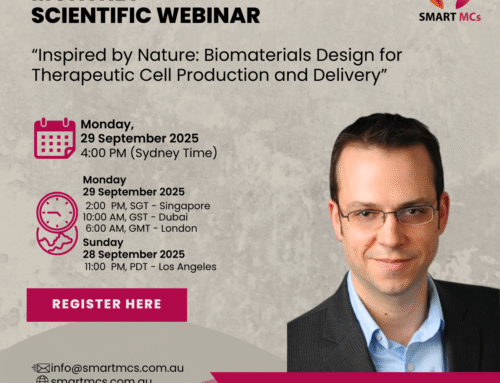
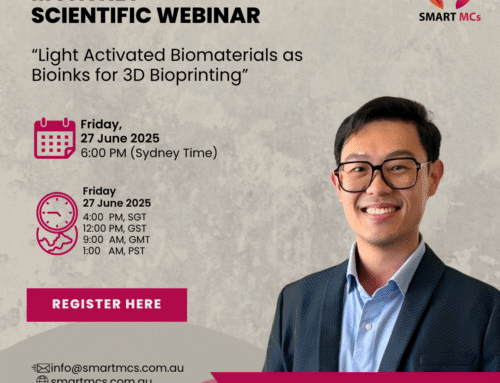
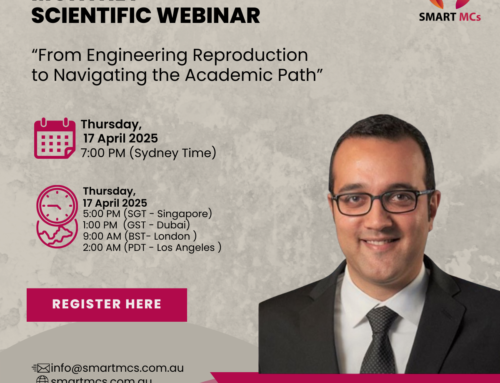
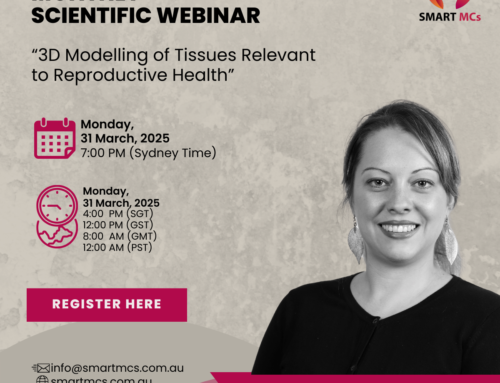
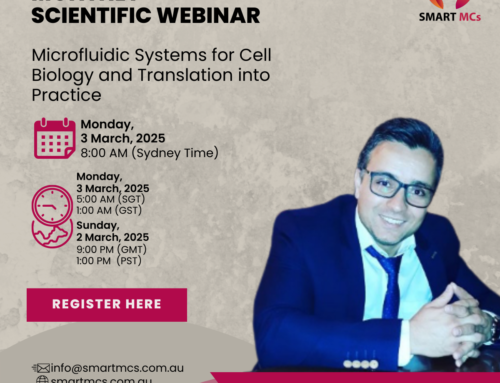
Leave A Comment